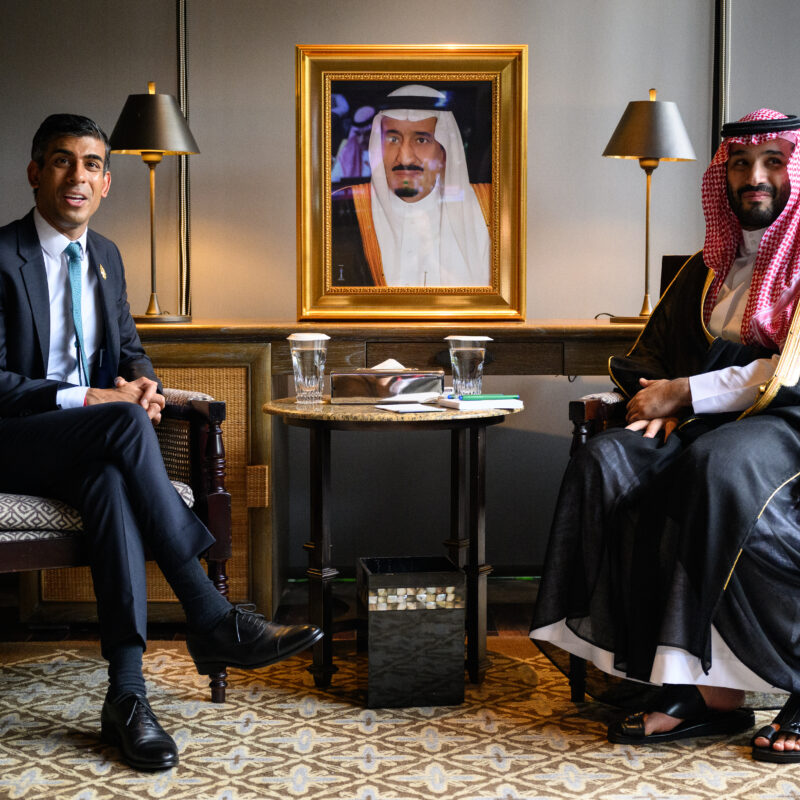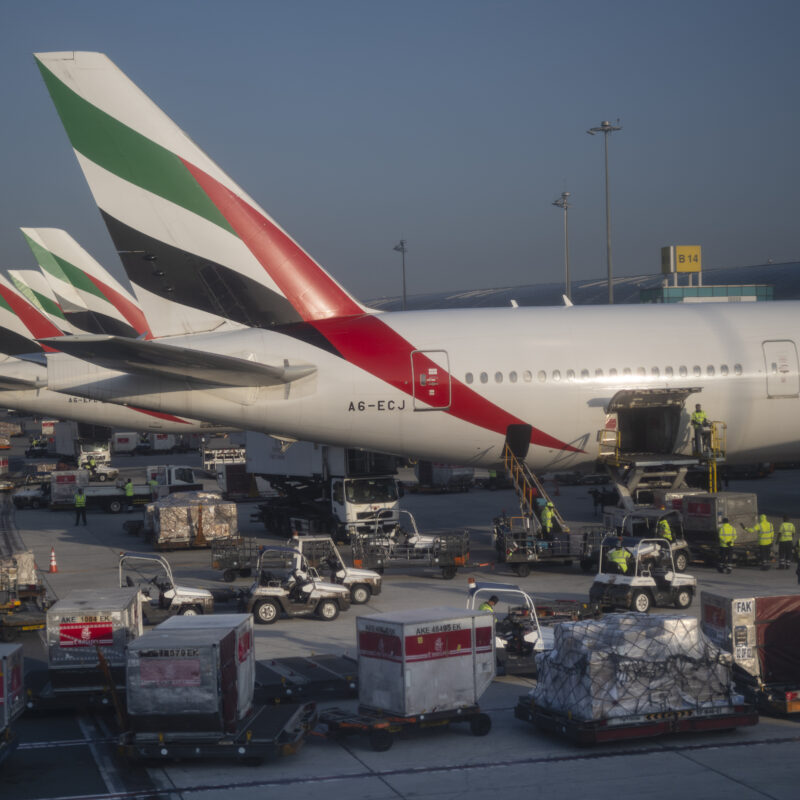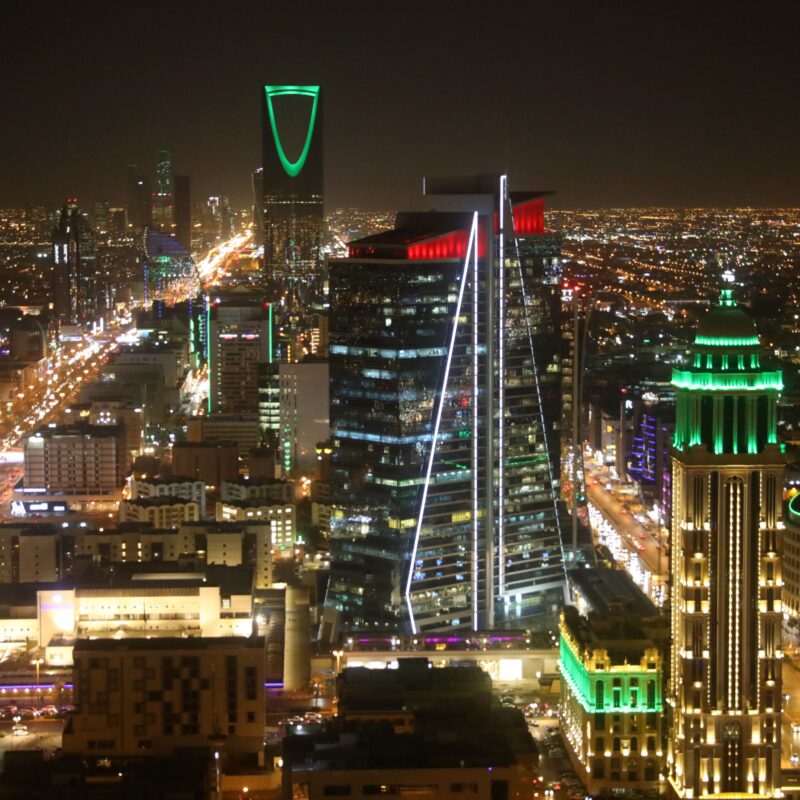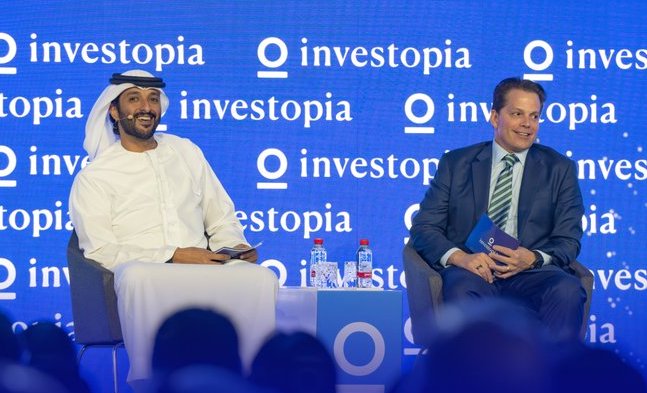The Weekly Circuit
👋 Good Monday morning in the Middle East!
Investors are looking for a silver lining to the grim announcements coming almost daily that Israeli start-ups are being forced to trim their costs and lay off staff. Some see the reductions as an inevitable correction to the financial exuberance that characterized the past two years of record fundraising, as The Weekly Circuit’s lead story points out below. Others expect a long-term contraction, spurred by the global economic slowdown, the rise in energy prices unleashed by the Russia-Ukraine conflict and the technology slide on Wall Street.
Even as VC money is tougher to raise for tech start-ups in Israel, Emirati leaders are increasingly bullish on the Abraham Accords. With more than $1 billion in trade recorded between Israel and the UAE during the first quarter of 2022, the Gulf state’s foreign trade minister, Thani Al Zeyoudi, told a Washington audience last week that he’s confident more countries in the region will soon be normalizing ties with the Jewish state. In Israel, Naftali Bennett spent one of his last days as prime minister at a cybersecurity conference on the Tel Aviv University campus, where he joined politicians, CEOs and academics from around the world to discuss cooperation against digital threats.
Israel starts the week with a new leader as Yair Lapid, who was a TV talk show host and amateur boxer before entering politics, took over as interim prime minister from Bennett. Lapid, 58, who leads the Yesh Atid (There is a Future) party, is expected to hold the office for four months after which Israel will hold national elections. The new premier will be on the tarmac at Ben Gurion International Airport next week to greet President Joe Biden when he makes his first trip to the region, taking him to Israel and Saudi Arabia.
Welcome to The Weekly Circuit, where we cover the Middle East through a business and cultural lens. Read on for the stories, deals and players at the top of the news. Please send comments and story tips to [email protected].
STAYING ALIVE
Cash tightens for free-spending Israeli start-ups, ushering in new era of job cuts
Israel’s tech workers are polishing their LinkedIn profiles. The trend toward tougher times is clear with fundraising for Israeli companies in the second quarter of 2022 down 31% from the same period last year, according to a survey by Greenberg Partners. And as the money disappears, The Circuit’s Robert Lakin found, so go the jobs.
One After Another: Just this week comes news that cybersecurity outfit Snyk plans to lay off 30 employees after a September 2021 investment round that raised $530 million. StreamElements, which helps users draw revenue from streaming video, cut 20% of its staff last week, less than a year after Softbank led a $100 million investment round for the company. Alibaba, the Chinese e-commerce juggernaut, told employees it plans to shut its Tel Aviv R&D center, leaving 40 people looking for work.
Another Bust?: The frequency and intensity of the news stories could have you wondering if the Start-Up Nation is facing a new version of the dot-com bust of 20 years ago? Not so fast, industry insiders say.
Keeping Cautious: In the most recent survey by OurCrowd, a Jerusalem-based venture capital funding platform, some 48% of the businesses polled reported “cautious hiring plans” for the balance of 2022, higher than earlier this year. More said they planned to freeze bringing on new employees. At the same time, many of those affected by layoffs at Israeli companies are, in fact, employed overseas or they don’t hold coveted roles in development and engineering.
Talented Engineers: When they have those jobs, employees being laid off are still likely to find other companies seeking their talent, analysts say. There are still far more open positions today than available employees, especially in technical talent areas like engineering and data science, where Israel is considered strong. The shrinking market may also reduce wage inflation, which could lead more companies to hire locally rather than offshore to Europe or India.
Read the full story here.
Part of the club
More countries will soon join Abraham Accords, Emirati trade minister says
Almost two years after the United Arab Emirates and Bahrain signed the Abraham Accords — followed months later by Morocco and Sudan –— an Emirati cabinet minister said he expects additional nations will soon establish ties with Israel.
Great Expectations: “The expectation is high that many countries are going to join,” Thani Al Zeyoudi, the UAE’s minister of state for foreign trade, said at a June 28 meeting organized by the Abraham Accords Peace Institute. While he refrained from naming which ones, Al Zeyoudi said they would come “from the region and Islamic countries that don’t have relations with Israel.”
Biden Prelude: Al Zeyoudi spoke in Washington less than a month before President Joe Biden travels to the Middle East, where he will visit Israel and meet leaders of the Gulf states at a gathering in Saudi Arabia. Trade between the United Arab Emirates and Israel is accelerating and will probably exceed $4 billion for 2022, according to Al Zeyoudi.
Building Momentum: “The numbers are growing,” he said during the discussion, which was recorded and posted on YouTube. “The numbers are going to show that we’re going in the right direction, and I’m sure that with this momentum, many things are going to be harvested very soon.”
Free Trade: Even before signing a free-trade agreement in May, economic activity between the UAE and Israel reached $1 billion in the first quarter of 2022, Al Zeyoudi said. Besides Israel, the UAE has also signed a Comprehensive Economic Partnership Agreement (CEPA) this year with both India and Indonesia. It is negotiating similar pacts with South Korea, Ethiopia, Kenya, and Turkey.
Watch the recorded meeting here.
Digital Pandemic
Cybersecurity leaders warn of global vulnerability at conference in Tel Aviv
International cybersecurity experts from business and government converged on Tel Aviv University last week to share ideas and strategies for combating digital crime.
Stop Cyber-Pandemic: Among the leaders in the field appearing at “Cyber Week 2022” was Gil Shwed, founder and CEO of Israel’s Check Point Software Technologies, who said the key goal is developing means for “preventing the next cyber pandemic.” The entire world is vulnerable because “very sophisticated tools for attacks on nation-states are available as a commodity to every hacker with Wi-Fi,” he said.
Paying a Price: Headlining the opening June 28 session was Israeli Prime Minister Naftali Bennett, who stepped down two days later as his governing coalition collapsed and started preparing for new elections. Bennett, a cybersecurity company founder himself in a previous career, used the podium to address Iran, saying the Islamic Republic will “pay a price” if it attacks Israel’s digital infrastructure.
Keyboard Combat: “We can get stuff done hitting an enemy through cyber,” Bennett said. “Before we needed to send 50 to 100 commandos behind enemy lines with huge risks. Now we get a bunch of smart folks together sitting at a keyboard and achieve the same effect.”
Malign Actors: Representing the White House was Anne Neuberger, deputy national security advisor for cyber and emerging technologies, who told the Tel Aviv conference that the use of cyber attacks in Russia’s assault on Ukraine requires an international response. “We’re using the full range of our capabilities in concert with allies to impose costs on malign actors for their actions in cyberspace, much as we would in the physical world,” she said
Circuit Chatter
Return of Ben & Jerry’s: Unilever, the parent company of Ben & Jerry’s, reached an agreement with the Israel-based manufacturer of the ice cream products, American Quality Products Ltd., to continue selling in Israel and the West Bank. Ben & Jerry’s announced in July 2021 that it would cease sales of its products in what it referred to as “Occupied Palestinian Territory,” triggering several states with laws prohibiting the boycott of Israeli products to announce they would divest from Unilever.
Hedge Magnet: Dubai is becoming more attractive to hedge fund managers, according to Bloomberg, which reports Izzy Englander’s Millennium Management and Michael Gelband’s ExodusPoint Capital Management are among those bolstering their offices in the UAE.
Hajj Glitch: Thousands of Muslims planning to make the hajj pilgrimage to Mecca were bumped from flights because of glitches in Saudi Arabia’s new Motawif web portal through which all reservations must be processed.
Apple’s Palestinian Hub: Apple said it will expand its engineering R&D hub in the Palestinian city of Rawabi in the West Bank, which currently employs some 60 engineers.
OPEC Soars: Oil revenue for the 13-member Organization of Petroleum-Exporting Countries rose 77% in 2021 to $561 billion, with higher demand as prices rebounded from the COVID-19 slowdown.
Free Mickey: Disney+ and Israel’s satellite broadcaster Yes canceled an exclusivity agreement, opening the streaming service to competitors in the country.
Speedy Delivery: Amazon opened a new delivery station in Abu Dhabi, enabling the world’s biggest online retailer to offer same-day service throughout the city.
Indonesian Trade: The UAE signed a free-trade agreement with Indonesia, aiming to boost annual business volume between the Gulf state and Southeast Asia’s biggest economy to $10 billion within five years.
Closing Circuit
Kushner Invests: Affinity Partners, the private equity firm formed by former President Donald Trump’s son-in-law Jared Kushner that reportedly raised money from Saudi Arabia to finance Israeli startups, has agreed to invest in Mosaic, an Oakland, Calif.-based company that provides loans for residential solar installations, according to Axios.
Canine Detection: SpotItEarly, an Israeli startup that trains dogs to detect cancers through scent, raised $6.2 million in a seed round led by Hanaco Ventures.
Egyptian Cargo: Abu Dhabi’s AD Ports will acquire a 70% stake in Egypt’s International Associated Cargo Carrier for about $140 million.
Send Cash: Dubai-based YAP, a digital banking platform operating in the Middle East, Africa, and South Asia, raised $41 million in a funding round that included participation by Saudi Arabia’s Aljazira Capital, Abu Dawood Group and Astra Group.
Online Casinos: Private equity firm Joffre Capital bought a 25.7% stake in Israeli online gambling company Playtika from Chinese shareholders for $2.2 billion.
No Milk Today: Saudi Prince Khaled bin Alwaleed’s KBW Ventures joined a $40 million fundraising round for Eclipse Foods, a U.S. maker of plant-based dairy alternatives.
Risky Business: XM Cyber, which has former Mossad director Tamir Pardo as a co-founder, will acquire Israel’s Cyber Observer to expand its risk management platform.
Keeping Cool: Strata, the aerospace unit of Abu Dhabi’s Mubadala Investment Co., signed an agreement with Germany companies Hyperganic and EOS to create an air-conditioning system it says will be the world’s most efficient.
On the Circuit
Khalid Al-Falih, the Saudi minister of investment, met in Washington with U.S. company CEOs in preparation for President Joe Biden’s visit to Saudi Arabia in mid-July.
Albert Bourla, the CEO of Pfizer, was awarded the $1 million Genesis Prize in Jerusalem and said he would donate the money for a Holocaust museum being built in Thessaloniki, Greece, his birthplace.
Al Gore, the former U.S. vice president, is a co-founder of Generation Investment Management, which led a $90 million funding round for Gloat, an Israeli company that uses artificial intelligence to help employees advance their careers within large organizations where they work.
Ahead on the Circuit
July 5: Food Security: The UAE-Israel Business Council and the Gulf-Israel Policy Forum will host an event exploring regional business cooperation on the issue. The online discussion will take place at 3 p.m. Israel time, 4 p.m. in the UAE.
July 14-28: The 2022 Maccabiah Games. Athletic tournament held once every four years draws Jewish athletes from some 60 countries for competition in sports ranging from track and gymnastics to soccer and ice hockey. Opening ceremony in Jerusalem with events at various sites across Israel.
July 19: Nazareth Conference on Arab Society in Israel. Bank of Israel Governor Amir Yaron appears with Arab business and government leaders. Golden Crown Hotel, Nazareth, Israel.
Circuit Culture
Augmented Garden Party: An exhibition of augmented reality artwork by 13 artists, including Chinese dissident Ai Weiwei and Mohammed Gazem of the United Arab Emirates, will open simultaneously in September in Israel, the U.S., Britain, South Africa, Australia and Canada. The show was conceived by the Jerusalem Botanical Gardens and Outset Contemporary Art Fund, an international nonprofit group. Visitors to 13 public gardens in the six countries will be able to view the works on their smartphones or tablets through a downloadable app. Through their screens, they will see the augmented artwork as an overlay to the plants growing in the gardens.








